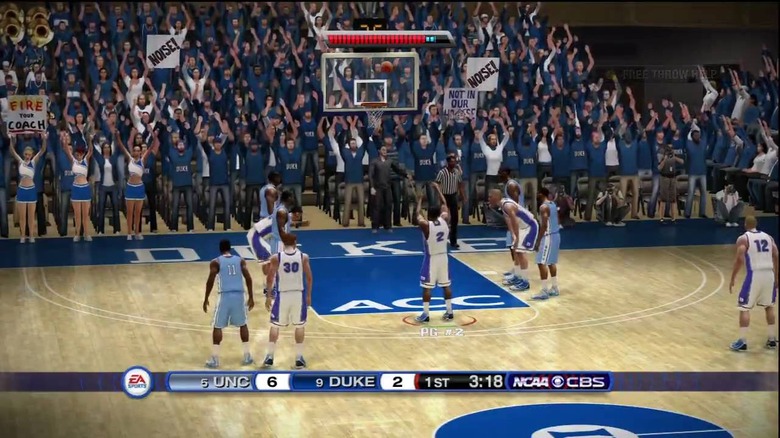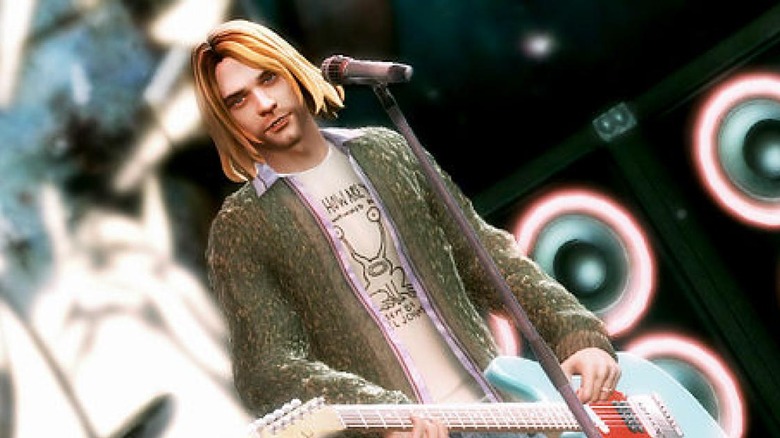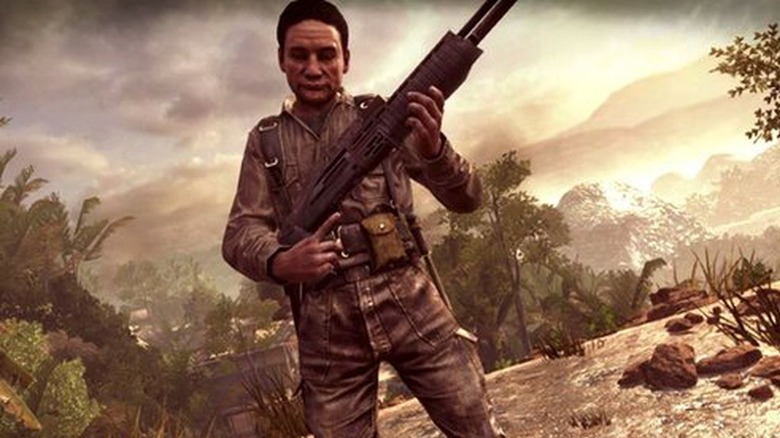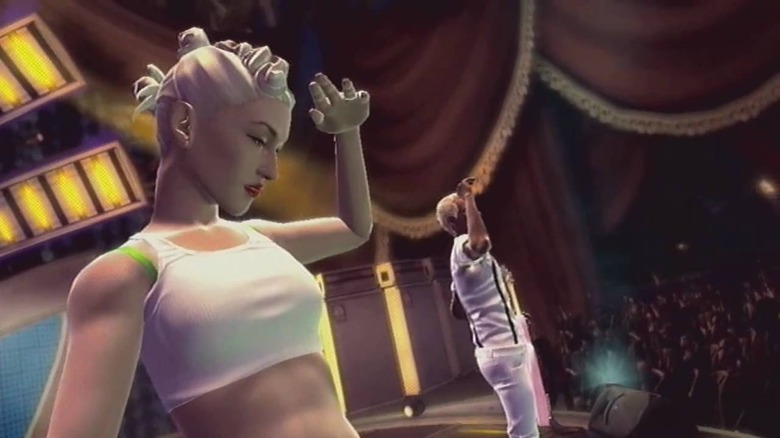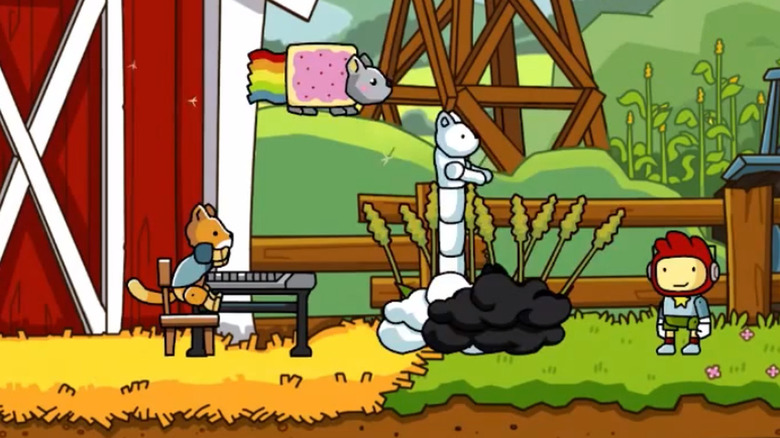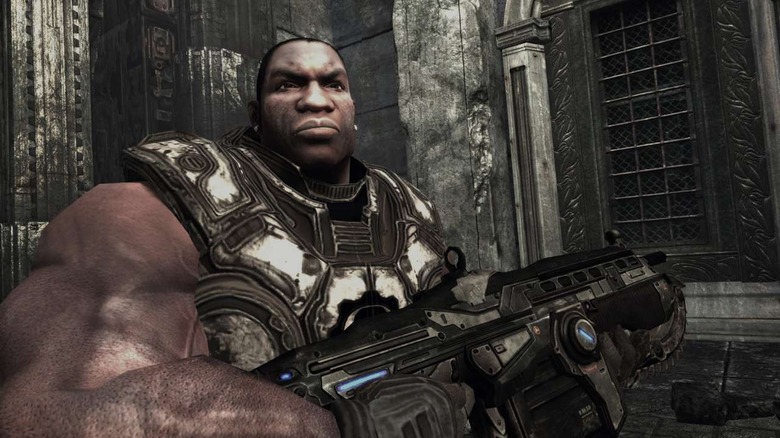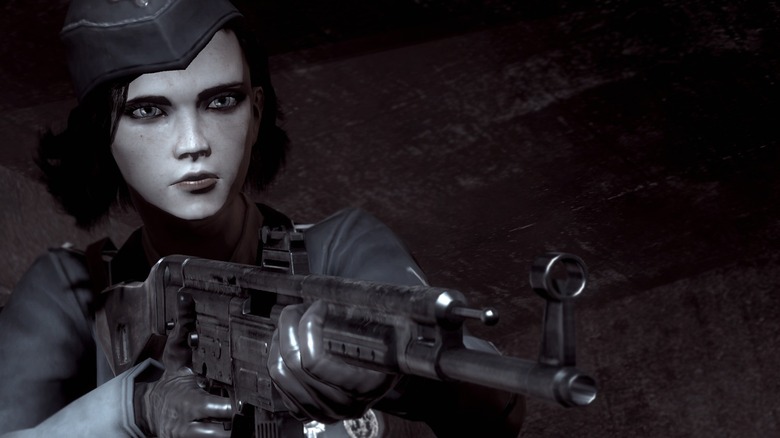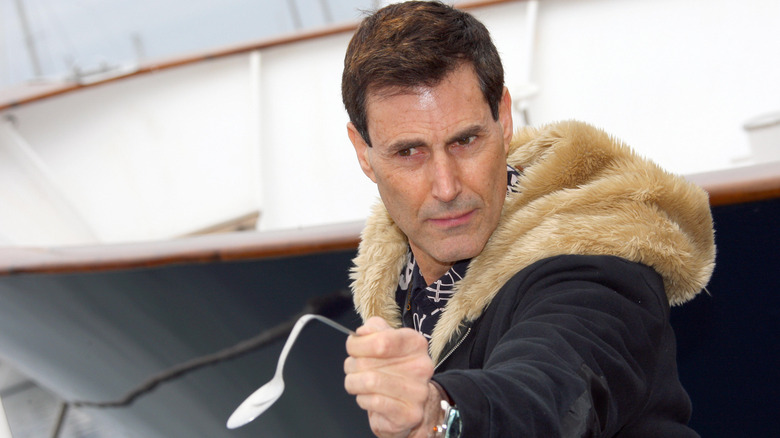Games That Angered Real-Life Characters
Most people play video games to escape from their day-to-day lives. But what happens when you notice that you're actually in one of the games you're playing? We think it would be pretty cool to find ourselves in a hot new title, but that's not how the people on this list reacted. From college sports to the exploits of the Olsen twins, these games show that not everyone likes it when they're a video game star.
NCAA Athletes (NCAA Sports video games)
College is a great place to learn who you are and find your place in the world. It's also a great place for decades-old institutions to take advantage of talented student athletes for monetary gain. While it's not surprising to learn colleges make money on the backs of their most prolific students, it was surprising when some of those athletes decided to fight back.
In 2009 Ed O'Bannon, a member of the 1995 UCLA men's basketball championship team, filed suit against the NCAA and EA for alleged violations of the Sherman Antitrust Act when he noticed his likeness was being used in a video game well after he was out of college. The legal battle was a lengthy one, and attracted a number of other high-profile athletes like Bill Russell. Eventually, EA and the NCCA agreed to settlements totaling $40 million, which were then shared with hundreds of other student athletes that were similarly taken advantage of over the years.
Since that legal battle ended in 2014, there have been no attempts at new college-based video games from EA—or anyone else, for that matter.
Courtney Love (Guitar Hero 5 - 2009)
There are few people in this world you want to tick off less than Courtney Love—her vengeance knows no bounds, especially when it comes to the memory of her late husband, Kurt Cobain. Activision felt the wrath of the Hole frontwoman after Guitar Hero 5 debuted featuring an in-game avatar of Cobain that was able to do more than appear in a few select tracks from Nirvana's catalog.
Guitar Hero 5 offered a number of famous musicians beyond Kurt Cobain, including Carlos Santana, Shirley Manson, and Johnny Cash. Activision had actually been working on getting Cobain into the series for years, finally getting Courtney Love, who controlled Cobain's estate, and Dave Grohl, who controlled Nirvana's catalog, to agree to a deal for the 2009 video game.
The contract covered Cobain's use for Nirvana songs, but apparently didn't mention using the avatar to sing other songs in the game, which is what drew Love's wrath. She even went so far as to call Guitar Hero 5 "necrophilic" and "vile." Her Twitter tirade made waves all over the gaming and music spheres during Guitar Hero 5's launch, but Love was far from the only person to publicly feud with Activision in the last decade.
Manuel Noriega (Call of Duty: Black Ops II - 2012)
It's not every day that a video game publisher can manage to draw the ire of an actual dictator, but that's just what happened with Activision and Panama's Manuel Noriega after the release of Call of Duty: Black Ops II. Don't worry, we're not asking anyone to have sympathy for a convicted drug trafficker, money launderer and murderer. We're just pointing out the ludicrousness of a person like Noriega being mad that Activision tainted his reputation.
Let's be frank: Noriega filed the lawsuit against Activision from prison. His portrayal as a kidnapper, murderer and enemy of the United States was far from inaccurate, even if it was a fictionalized account of that period of American and Panamanian history. That he believed this single video game had an impact on his legacy led to one of the most mind-boggling lawsuits in gaming history.
Or at least it would have, were it not thrown out by the California judge handling the case. Before any actual legal debates could occur, the suit was dismissed due to Activision's first amendment rights taking precedence over Noriega's right of publicity as a public figure.
Lindsay Lohan (Grand Theft Auto V - 2013)
Believe it or not, one game can sometimes draw the ire of the same person twice. It takes a special kind of someone to believe a game is targeting them that much, but as it turns out, that's exactly the kind of special Lindsay Lohan brings to the table.
Initially, Lohan was upset with Grand Theft Auto V over the game-character Lacey Jonas, an actress with issues trying to avoid the paparazzi. Lohan claimed Jonas was based on her, and the character's inclusion thus violated her right to privacy. Additionally, Lohan claimed the bikini-clad figure on the game's box art, a blonde giving a "peace sign," was clearly based on her.
Despite her lawyers' best efforts, Lohan's accusations were dismissed by the court for lacking merit, which isn't all that surprising to anyone with a bit of common sense. It's a good thing there weren't too many other female characters in this game, or Lindsay might have just kept on going until she found a suit that stuck.
No Doubt (Band Hero - 2009)
Here's a case of deja vu. Like Courtney Love with Kurt Cobain and Guitar Hero 5, No Doubt went after Activision after discovering several bandmates were allegedly used improperly in Band Hero.
You might think there was a great difference between Guitar Hero and Band Hero given that they got separate releases, but in 2009, both titles used the full complement of instrument accessories. The only real variation was in the title and the track listing, with Band Hero even copying the troublesome ability to play any song as any member of a given band, regardless of how ill-conceived that idea may have been.
Band Hero caught flack from No Doubt for the particular instances of allowing Gwen Stefani's avatar to perform tracks like "Honky Tonk Woman" and letting Tony Kanal's avatar sing "Just a Girl" instead of Gwen. No Doubt's suit claimed the band agreed to be in the game to perform their songs as they did in real life, not as a "virtual karaoke circus act." Activision and the band settled out of court, and the publisher's Hero brand as we knew it faded from shelves soon after.
Nyan Cat/Keyboard Cat (Scribblenauts - 2012)
Internet fame is a double-edged sword. You gain viral attention for doing some silly things, but with that comes the (false) idea that whatever you've made on social media is open for everyone to use as they see fit. While that typically means people sharing images, memes, and jokes without attribution, sometimes it means developers put you in their video games without asking.
Both Christopher Orlando Torres (Nyan Cat) and Charles Schmidt (Keyboard Cat) have registered copyrights for their memetic creations, which caused some consternation when the two feline internet celebrities appeared in Scribblenauts. The two creators defended the use of their creations across the web when used by people for fun, but took true umbrage when used by Warner Bros. in a for-profit situation. Eventually, both Torres and Schmidt came to an agreement with Warner Bros. over the uses of their cat characters.
Lenwood Hamilton (Gears of War - 2006)
You've probably never heard of Lenwood Hamilton, which is perfectly fine. Most of the world outside of Lenwood Hamilton's house had never heard of him either until early 2017, when he filed a suit against Epic Games and Microsoft for allegedly stealing his look, mannerisms, and elocution for a character in Gears of War.
The gaming world knows Augustus Cole, a.k.a. "Cole Train," was voiced by Lester Speight, a.k.a. Terry Tate, Office Linebacker. But Hamilton claimed Speight actually took the inspiration for the character's personality from him back when the two worked together as wrestlers in 1998. As such, Hamilton believed he was entitled to royalties and profits from the successful franchise, which has earned Microsoft more than a billion dollars.
To his credit, Hamilton supposedly hired a forensic voice examiner to further his point that the Gears of War character is heavily based on him, right down to the voiceover. The courts have yet to decide just how much of a case Hamilton has, but as we've seen in some earlier examples, it's awfully hard to convince the court your own person has been infringed upon in a video game.
Tania Szabo (Velvet Assassin - 2009)
Historical fiction games like Call of Duty and Assassin's Creed offer a unique perspective on times or eras when the player couldn't possibly have been there in person. That was definitely the case for Velvet Assassin, a stealth-action game based on the exploits of Resistance spy Violette Szabo.
Velvet Assassin had all the makings of a potential female-led Splinter Cell, with the added advantage of being based on the real World War II efforts of an actual spy. Unfortunately, developer Replay Studios was more focused on the titillation a female lead could bring than honoring the heroic work of the actual Violette Szabo, which left her a casualty of war at just 23 years old. How else do you explain the inclusion of "morphine mode," which both makes you invincible and dresses you in a revealing nightgown?
When offered the opportunity to lend her mother's actual name and history to the game, Violette's daughter Tania balked, not wanting the memory of her mother conflated with this exaggerated and overly sexual game. Though a formal declaration decrying Velvet Assassin was never given by the Szabo family, their stance on the subject was very clear.
Mary-Kate and Ashely Olsen (Mary-Kate and Ashley in Action! - 2003)
The Olsen Twins may be more known for their contributions to fashion and culture these days. But when the Olsen Empire was still a TGIF force to be reckoned with, the duo dabbled in more than just television and movie appearances. The twin sisters even appeared in a number of licensed video games, with their own company, Dualstar, helping develop these titles.
For what would have been their tenth game, Mary-Kate and Ashley in Action!, Dualstar and Acclaim were at odds over whether or not the publisher ever intended to release the game. The Olsen-led company filed suit that Acclaim never delivered on the $1 million development cost, and abandoned the game without settling the termination costs.
The Olsen games were never anything to get excited about, but that doesn't stop attorneys from looking to push their weight around at the benefit of their clients. That's something Dualstar would learn later on, as it too was sued by former interns claiming they never got credit or payment for the work done at the company. How rude.
Uri Geller (Pokemon - 1996)
You didn't think you'd make it all the way through this list without Nintendo getting dragged into the murky waters of baseless lawsuits, did you? Honestly, the company has done a fairly great job of avoiding this type of trouble—their biggest brush came when a real human being thought a Pokemon was ripping him off.
Magician Uri Geller believes the Pokemon Kadabra, a yellow fox-like creature that wields a bent spoon and allegedly has Anti-Semitic symbols on its body, infringes on his personality and makes him look evil. After noticing this character on a Pokemon trading card in 2000, Geller attempted to sue Nintendo for $100 million because of these supposed similarities. If or how the case was resolved remains unknown, but while Kadabra has appeared in video games since, Nintendo has never reprinted the Kadabra card in question in any form.

